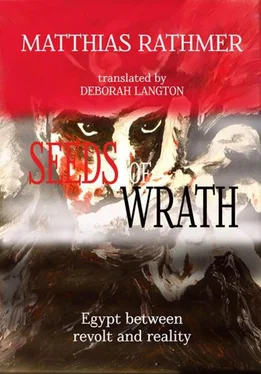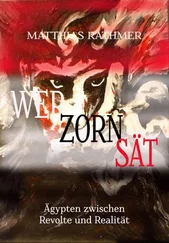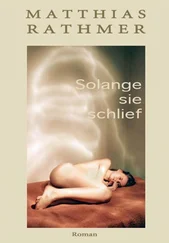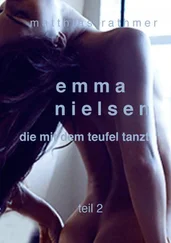Further east is the huge cave church of St Sama’an, the largest Coptic church in the Middle East. On high days and holidays it is packed and more than ten thousand faithful pray within these impressive architectural surroundings. I had arranged to meet her halfway there. She was on time, as she politely but firmly made it clear on the phone to me while I sat in a taxi waiting for the dispersal of a traffic jam caused by a small delivery truck.
The smells emanating from every pore of this district were now well-nigh intolerable and my ears were being subjected to an unbearable level of noise. Children and youngsters darted here and there, climbed up on the waste tips or gave the men a hand. Weighty sacks were emptied or filled, then dropped moments later onto a loading area. Enormous container trucks waited to receive recycling materials. A bulldozer and a digger made endless deliveries. If something fell to the ground then it had to be retrieved come what may. Then at last. I was on the way out of this stench and roar. I could see her some way off. She was flagging down a taxi. She got in. Her freshness and energy did not really sit well with this environment, I thought as we greeted one another. I still had no idea just how extraordinary this day was going to turn out.
Rania isn’t her real name. When we’d arranged this meeting, she’d made it extremely clear that neither her identity nor any photos were to be published. She explained her fear of what she described as unpleasantness from the authorities because sooner or later I was going to ask her about the conditions which marked out the whole dilemma facing school policy in Egypt. This is where anonymity is a useful self-preservation tool. The system and those upholding it did not welcome any critical voices.
Rania was a teacher from another district. She was in her late twenties, married with two children. She came here once a week, to one of those poor districts of Cairo that is Manshiet Nasser, to the Rubbish Collectors’ slums, to do voluntary work with five other teachers at the school run by the organisation, Stephen’s Children .
The building extends over two floors and does have windows and doors, one feature alone which sets it apart from the numerous ruined buildings in the neighbourhood. Donations and extemporised art shows have made its existence possible. The welfare people call this sort of place a communication centre, a place where help of all types is available. The charity runs ninety centres like this across the whole city.
Maggie Gorban, the figure central to the leadership of Stephen’s Children, and Cairo’s Mother Theresa, as she is referred to with as much reverence as admiration, has meanwhile become known far beyond the borders of Egypt. The sixty-five year old former computer science academic has been nominated several times for the Nobel Peace Prize. She has involved herself in social flash-points between Christianity and Islam and speaks on behalf of the slum dwellers with a particular focus on the Copts, and yet also for those with no declared faith. However extraordinary this merciful soul and mother to all street children was, however appealing the prospect of perhaps meeting her the same day if her time and work permitted her to do so was, it was actually to meet another woman that I had come here. That woman was now sitting next to me and struggling to put into words the full scale of a catastrophe.
It was the main break of the day. Maths was done, reading and writing were next on the agenda. I was watching little Habir’s playfulness. Her tears had dried. She was skipping about quite happily. She ran past us several times and proudly called out that she knew what two and two made.
‘I could have wept with her,’ Rania suddenly burst out, took a deep breath and looked at the carefree child whose future was, as she added without emotion, sealed at birth.
For a moment I didn’t know what to say.
‘Sometimes I think it’s better to stay in ignorance. If you’re happy, that is.’
Again there was nothing to say in response.
‘Well then. Whatever.’ After a short silence, she began to offload her feelings. She gave me a quick overview of the basic features of the Egyptian school system and sketched out how the ideal school-life would conclude with the start of a course of study at university or, after the appropriate professional training, the start of a professional career. From her own sphere of work she had, in addition, an insight into the work of a commission which had recently formulated some proposals for reform of part of the education system.
That was how I knew her. Nonconformist and determined. Prior to my visit to this school I had met her on two previous occasions and seen at first hand how fond her pupils were of her. Superiors and peers alike attested to her professional and personal competence with such intensity that these repeated hymns of praise became so powerful that you could be forgiven for feeling quite disconcerted by them at first.
I’d first met Rania at a barbeque given by a mutual acquaintance. It wasn’t long before all the kids were round her, like bees round a honeypot, while she played and fooled about with them as if she’d known them for years. I love to see people with a passion for their work. In Rania’s case this devotion was infectious. She came across as entirely genuine and earned real respect in return. ‘No’ meant ‘no’, a warning came first and then the explanation. Teachers who radiate charisma like this, who never use their greater knowledge to make excessive demands on others, who support each individual as much as possible in the class, have every right to be in school. In my time I have met plenty of trained educators who would have done better to stay away, both for their own good and those of others.
After the maths class the children had put together a shopping list for the supermarket. Those who couldn’t write ‘banana’ had drawn one instead. This went on for just under an hour. Aunt Maggie was stuck in a traffic jam. Due to an array of other appointments she’d cancelled her visit today. This meant the kids had the benefit of a longer break because the visit from on high would have occurred during their lesson time. Rania was convinced her pupils’ concentration was fading. Just a quick look at their written efforts on good nutrition had shown her that much.
We were sitting on a wall in the shade of a tumbledown house and looking across at the little educational establishment which brought so much. The charitable organisation had converted the front rooms into two teaching rooms. Beyond that was little more than nothingness, I thought to myself.
Because the street children were not allowed to sleep or eat here, there was something magical about this place Rania told me, something all those who came here tried to protect as they would precious treasure, most of all the children themselves. During the previous winter, when it was getting unbearably cold for the slum-dwellers in their miserable shacks towards the centre of this district, the kids themselves had set up their own night-watch to guard their tables and chairs. Otherwise it’d all have been snapped up for firewood. Perhaps the spell of this energetic desire to fight for knowledge came from the children’s will to do something for themselves and their own futures, in spite of all the odds. But it was probably because nobody had shown them once in their life how to value anything which did not bring in money.
But still she battled with herself and seemed unsure how to teach them about things you can’t see. It was only later at home, as I listened to the recordings I’d made of our conversation in order to get them down on paper, that I realised how her passion was tearing her apart.
While the little ones are going mad at play, testing to destruction the ball Rania had suggested I bring as a gift, the teenaged members of the class are busy keeping themselves apart from one another. Two boys are trying hard to get a borrowed frisbee to spin properly. The only three girls in the class are watching. They keep leaning close to one another to whisper and giggle in an engagingly daft way. Omar, a thirteen year old lad, who had been remarkably quiet during the lesson, is sitting to one side and reading a German story book he’d grandly presented me with the moment I had arrived.
Читать дальше











